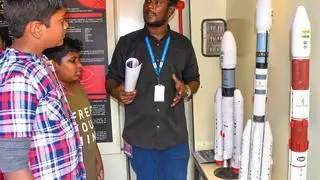Indian scientists are embarking on an ambitious programme to map thousands of genomes from the country’s many ethnic communities.
The initiative, the first of its kind from India, will help identify genes and genetic variations that underlie many diseases, particularly hereditary ailments, for which there is no cure currently.
The decision to launch the project was taken at a meeting of top genome scientists at the Centre for Brain Research (CBR), which is an autonomous body at the Indian Institute of Science (IISc), Bengaluru.
The CBR, set up with liberal funding from the Pratiksha Trust of Infosys co-founder Kris Gopalakrishnan and his wife Sudha Gopalakrishnan, has promised to fund the mapping of at least 1,000 genomes from across the country, said a scientist, who requested anonymity. Sequencing of each genome is expected to cost about $1,000.
Rich diversityThe scientists rued that India never felt it important to map the genomes of its citizens. “A country like India, which has so much ethnic diversity, should have mapped at least 10,000 genomes by now. I am surprised that it wasn’t a priority for the authorities even now,” the scientist said.
Genetic variations in individuals are important in health and disease treatment and are useful tools to study evolution, migration and population history of various groups of individuals.
According to some estimates, India has more than 4,000 well-defined anthropological groups. Many of these groups shunned inter-marriage for centuries due to cultural and societal reasons.
This, in turn, has led to creation of different population groups with their own genetic make-up.
Apart from identifying subtle genetic variations that set Indians apart from the Caucasian or African population, building such a genetic catalogue would help unravel genes responsible for genetic disorders.
Weapon against diseaseEvery year, over 1lakh babies in India are born with congenital diseases, but there is very limited understanding of the genes involved.
“Currently, there is no Indian genome available in the public domain,” said Bratati Kahali, a researcher with CBR. The genome project, she says, will help address this lacuna.
“We are really excited to be part of this venture,” said Dinabandhu Sahoo, Director of the Institute of Bioresources and Sustainable Development (IBSD) at Imphal. IBSD, he said, would gather samples from the North-East, a region with over 220 ethnic groups.
Apart from IBSD, the Centre for Cellular and Molecular Biology in Hyderabad, LV Prasad Eye Hospital (Hyderabad), the Rajiv Gandhi Centre for Biotechnology (Thiruvananthapuram) and IIT Jodhpur will participate in the ambitious project.








Comments
Comments have to be in English, and in full sentences. They cannot be abusive or personal. Please abide by our community guidelines for posting your comments.
We have migrated to a new commenting platform. If you are already a registered user of TheHindu Businessline and logged in, you may continue to engage with our articles. If you do not have an account please register and login to post comments. Users can access their older comments by logging into their accounts on Vuukle.